In “The Luminous Golden Ball,” Waldo Américo López brings a fascinating story of family history, community struggle, and personal strength that speaks volumes about the human capacity to overcome hardship. The book intends to advice readers to find strength in unity and to see the positive potential in every challenge. Lopez shares his personal life, offering practical lessons on facing life’s difficulties with courage and cooperation. The read will attract the audience to connect to similar difficulties faced by them, and how they can face them with grace.
The novel begins with a celebration of legacy and the lasting bond of community. He begins by writing about his ancestral roots, linking the family back to Europe and relating it with the native history of Puerto Rico. Thus, this foundation in family heritage sets the stage for a broader discussion of identity and belonging, themes that connects deeply in today’s global society. As the story clarifies, he introduces us to an important moment in the history of Culebra, Puerto Rico, where the local community is faced with the worrying presence of U.S. Navy military exercises. The exercises, which often backfired into civilian areas, sparked a collective turmoil led by a group of brave locals, including his own family members. Their journey to Washington, D.C., to seek the aid of Senator Robert Kennedy highlights a main message; when communities unite for a common cause, they use significant power to effect change.
One of the most striking lessons from his story is the everyday application of strength and unity in overcoming problems. The readers can connect to the community’s successful campaign against the Navy’s presence in Culebra serves as an example of effective public involvement. Thus, the historical episode encourages audience to engage actively in their own communities, encouraging for justice. Whereas at the same time, it prompts one to ask: What local issues are impacting my community, and how can I help to address them?
Furthermore, his personal story of family conflict and final reunion offers a view of resilience. In spite of the heartbreak of his father’s untimely death and the following disturbance, the family finds stability and peace through mutual support and shared goals. This personal story of overcoming hardship through family unity provides a way for readers dealing with their own personal struggles. It teaches us that no hardship is too great when faced with the support of loved ones
The book leaves a permanent mark on its readers by showing how personal and shared challenges are connected. His detailed account of his family’s role in the freedom of Culebra from naval occupation not only highlights the strength found in unity but also marks the political narrative, making it relatable and convincing. It also challenges the readers to consider their role within their own communities. It serves as a reminder that each person’s actions contribute to the broader society and that by coming together, many obstacles can be overcome. In a world where individualism often takes over, López reminds us of the beauty and strength of collective action.
Waldo Américo López read is a combination of historical account and family story; highlighting the exploration of the human capacity for courage and unity throughout. The book engages and shows painful experiences of his family, to make the readers understand the power of community and the enduring strength of shared bonds. His intent was not only to entertain but also educates, leaving readers with a new sense of purpose and a deeper understanding of the impact of collective action. In our own lives, as in the story, we can achieve remarkable things when we stand together.





